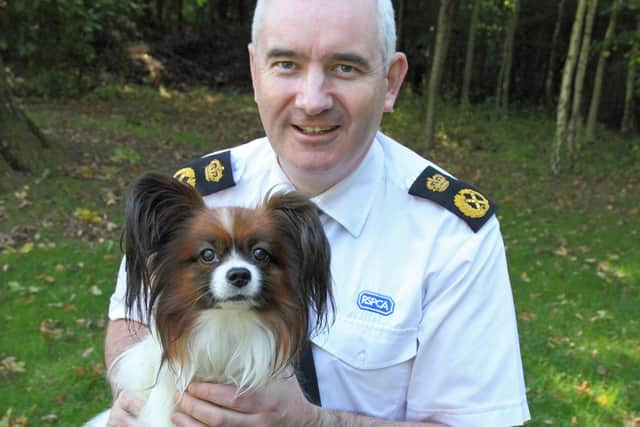Animal charity fears a massive rise in dumped pets


During the three months since lockdown began, the RSPCA has received reports about 3,492 abandoned animals across the country.
Dermot Murphy, head of the charity’s animal rescue teams, said: “During lockdown we’ve seen pets become a source of comfort and support for people and it appears many people have taken on new animals. Fortunately during this time we’ve dealt with fewer abandoned pets; however we are worried that as lockdown eases, people return to work, go on holidays or struggle financially we will be facing a massive surge of animal abandonments.
Advertisement
Hide AdAdvertisement
Hide Ad“I’d urge anyone struggling with their pet to ask for help. Animals have been there to help us through the crisis, please don’t abandon them now.”
Summer is a busy time for RSPCA workers. Reports of abandoned animals between June and August make up 30% of the year’ s total.
The charity’s workers received reports of 489 dumped pets in Derbyshire during the three-month summer period last year out of a total of 16,519 abandonments across the country.
Their call-outs included three guinea pigs who were ‘chucked out during a spring clean’ last June. The trio were found by a member of the public in an alleyway off Fairfield Road in Buxton.
Advertisement
Hide AdAdvertisement
Hide AdRSPCA inspector Heather Morris collected the abandoned pets. She said: “The guinea pigs had been dumped in a cage, left next to an old sofa that had obviously been recently fly tipped.
“It was like someone just decided to chuck them out, along with the sofa, during a spring clean. The cage they were in was small and dirty. They had no food but, thankfully, they appeared healthy. They were very lucky that someone spotted them and took them home before calling us. Otherwise they’d have got very hungry, very quickly.”
The three female guinea pigs were not microchipped and were taken to a boarding establishment to be looked after before they were rehomed.